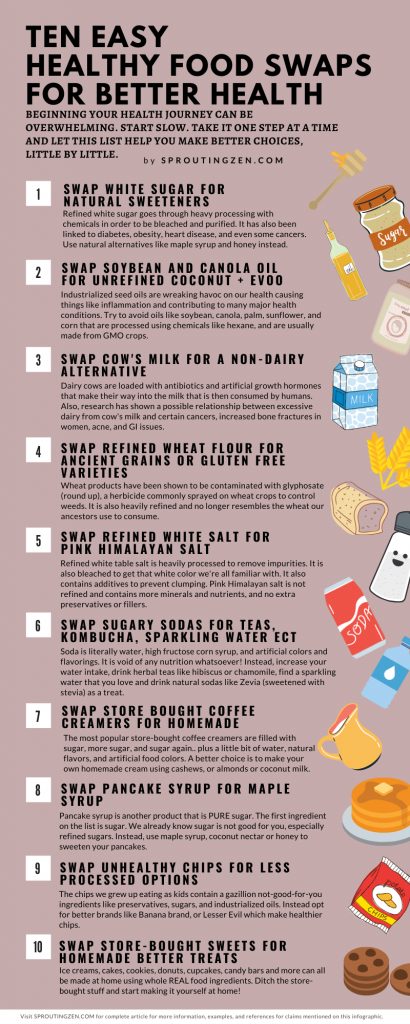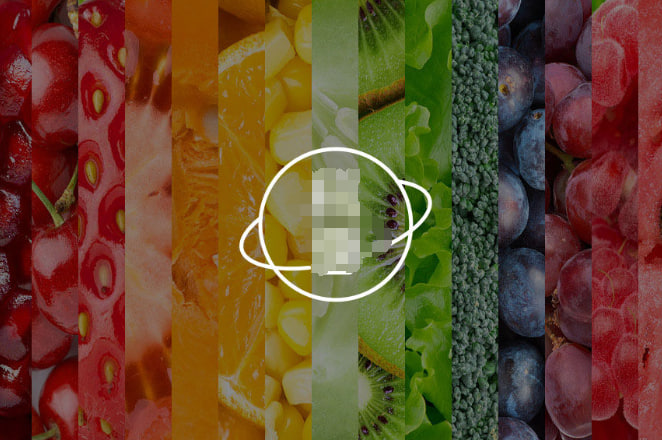Many people know that healthy habits are good for the body. But did you know. Eating healthy can actually help us improve our mood and even reduce the symptoms of depression.
If you’re depressed, your doctor may recommend counseling or medication. In addition to these methods, self-care is also important, such as getting enough sleep, exercising regularly, practicing meditation, and so on. Another thing that is important is diet.
Many people choose to eat some of their favorite foods to comfort themselves when they are depressed, such as potato chips, desserts, fried chicken, ice cream, and so on. This method seems to be effective for a short period of time, but in fact, some of these foods not only may not make you truly happy, but may actually make your mood worse.
So what are the foods that “the more you eat, the more depressed you get”? And what can you replace them with? Let’s talk about them one by one.

First, fast food: convenient, but harmful to the body, the mood is also affected.
Fast food restaurants, such as fried chicken, French fries, burgers, etc., not only cheap, fast, eat also very tasty. But they are actually very unfriendly to the body.
Studies have found that people who eat fast food are more likely to suffer from depression than those who don’t. Why is that? Because fast food contains many ingredients that are bad for your body, such as
These ingredients can affect the health of the body internally, which in turn affects the brain, making us more prone to low mood, anxiety, and even crankiness.
Suggested Substitutes:
If you must eat fast food sometimes, try to choose relatively healthy foods from the menu, such as
Two: Alcohol: Drinking to relax? Actually, it can be worse.
Many people are used to drinking alcohol to relax when they are in a bad mood, because alcohol can make people temporarily happy and even a little “floaty. This is because alcohol allows the brain to release a chemical called “serotonin,” which makes people feel happy.
But for people with depressive tendencies, alcohol can make the problem worse.
According to some studies, drinking too much alcohol can not only worsen depressive symptoms, but also lead to “alcohol-related depressive disorder”. Especially after stopping drinking, some people become more emotionally unstable.
In addition, alcohol can reduce the effectiveness of antidepressant medications and interfere with treatment.
Suggested Alternatives:
You may want to try the following nonalcoholic beverages:
This way you can “drink” without hurting your brain and body.
Refined white rice and noodles: Lack of nutrition makes you more tired.
Many people eat rice, steamed bread, noodles every day, these staples are not a problem, but the key is that they are not “refined”.
What is refined? For example, grinding brown rice into white rice, whole wheat flour into white flour, these processes will make the food softer and more delicious, but also lost a lot of beneficial nutrients.
Studies have found that people who eat such refined grains for long periods of time, especially women, have a higher risk of developing depressive symptoms. And people who ate whole grains, such as brown rice, whole wheat bread, and oatmeal, were more emotionally stable.
Recommended substitutes:
These foods may not taste as “soft” as white rice and white flour, but they are more nutritious and brain friendly.
Too much salt isn’t just bad for your blood pressure!
We all know that eating too much salt can lead to high blood pressure, but you may not know that eating too much salt can also affect your mood.
Studies have found that a high-salt diet is not only bad for the heart, but also affects gut bacteria and blood flow to the brain, all of which are linked to mood and thinking.
Animal studies have also found that mice that eat too much salt show anxiety and reduced learning ability.
Suggested Alternatives:
Salt is not to eat, but to “eat less.
V. Refined Sugar: Addictive and depressing.
Sweets are delicious, but eating too much refined sugar can make people more susceptible to anxiety and depression.
Some studies have found that eating too much sugar can:
All of these can make it harder to stay happy and calm.
Suggested Substitutes:
Sixth, artificial sweeteners: no sugar, but does not mean healthy.
In order to reduce the intake of sugar, many people will choose to drink “sugar-free cola” or eat “sugar-substituted snacks”, these products are usually added to the artificial sweeteners, such as aspartame, acesulfame, saccharin and so on.
While this may sound healthy, studies have shown that these sugar substitutes can also have negative effects, especially on mood.
One study found that people who ate a lot of aspartame were more likely to feel moody, irritable, and depressed. This may be because the sweetener affects important chemicals in the brain, such as serotonin, dopamine, and cortisol.
Suggested Alternatives:
Seventh, energy drinks: short-term excitement, long-term damage to the body.
Sometimes we rely on drinking energy drinks to refresh ourselves, such as after exams, late nights and sports. These drinks contain a lot of caffeine and sugar, which can make people feel mentally stimulated for a short period of time.
However, studies have found that people who regularly drink energy drinks have more stress, more anxiety, and even a higher likelihood of depression.
Especially if you’re already a poor sleeper, drinking this drink can make your sleep worse, which in turn affects your mood, creating a vicious cycle.
Suggested Alternatives:
Eight, processed meats: Eating too much can affect your mood.
Sausage, ham, salted beef, jerky These processed meats are convenient and tasty, but studies have found that they are associated with depression risk.
These meats are high in trans fats and saturated fats, which increase inflammation in the body. These inflammatory responses not only affect the body, but can also affect the brain.
Suggested Substitutes:
Summary:
Eating the Right Foods for a More Stable Mood While changing your diet alone can’t completely cure depression, a good diet can really help you feel more refreshed and emotionally stable.
You don’t have to change your diet all at once; just starting with your daily meals and slowly making some healthier choices can make a big difference.
If you find yourself chronically depressed, lacking energy, and uninterested in anything, remember to seek professional help. Doctors and counselors can give you the best advice.
Diet can help, but it’s not the only antidote.

